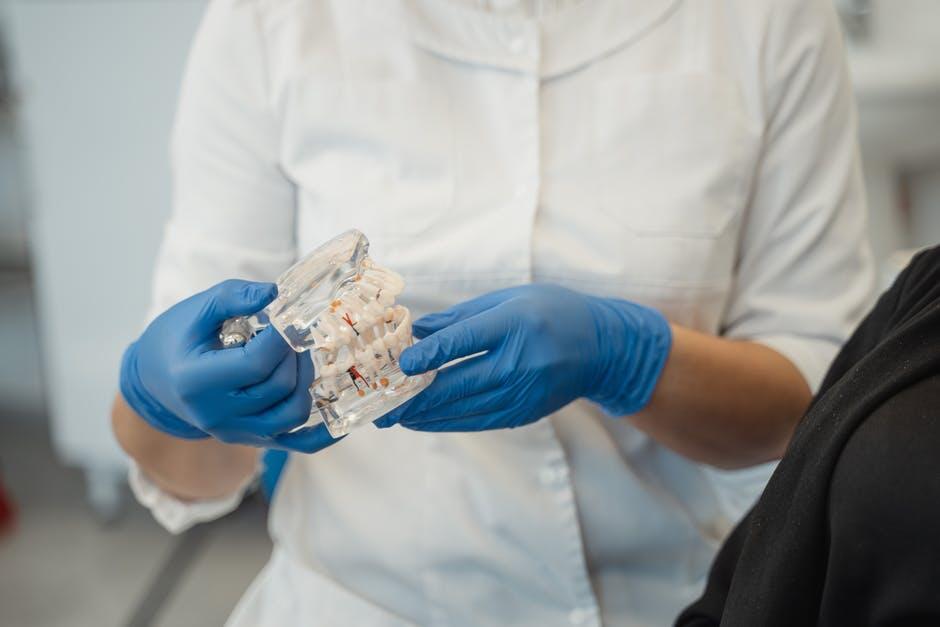On average, American adults aged 20 to 64 keep about about 25 teeth and lose the rest. The idea of missing teeth can be daunting. They affect your oral health, confidence, and general well-being.
Are you grappling with whether partial dentures are the right solution for your dental needs? Keep reading to familiarize yourself with the different types of partial dentures. We’ll also take the time to explain denture costs, the process of getting dentures, and more.
Understanding the Types of Dentures
Partial dentures are a popular and effective dental solution for people with one or more missing teeth.
These dental appliances are designed to fill the gaps left by missing teeth, providing both visual and functional benefits.
Removable Partial Dentures
RPDs are a popular choice for those who prefer a removable dental solution.
They consist of replacement teeth affixed to a framework made of either metal or plastic. The framework clasps onto your leftover natural teeth for stability.
Fixed Partial Dentures and Dental Bridges
FPDs are non-removable dental appliances used to replace missing teeth. They can be anchored in place by attaching artificial teeth to your nearby natural teeth or dental implants.
Dental bridges give you a stable and long-lasting solution for missing teeth.
Implant-Supported Partial Dentures
This type involves attaching a partial denture to dental implants surgically placed in the jawbone.
Implant-supported partial dentures offer exceptional stability and mimic the natural feel of teeth.
What to Expect From Denture Costs
The cost of partial dentures can vary. It can depend on the type of denture, materials used, and the complexity of the restoration.
Here’s a breakdown of potential costs associated with different types of partial dentures.
Removable Partial Dentures
RPDs tend to be more cost-effective compared to fixed options.
The materials used for the framework and artificial teeth influence the general cost.
Fixed Partial Dentures (Dental Bridges)
Dental bridges may have a higher upfront cost, but they offer long-term durability.
Factors like the number of artificial teeth and the materials used affect the cost.
Implant-Supported Partial Dentures
While implant-supported options generally have a higher cost at first, many patients find them to be a worthy investment. The cost includes the surgical placement of dental implants and denture fabrication.
Understanding the potential costs of different types of dentures is crucial for making better decisions about your dental care.
The Impact of Missing Teeth
Beyond financial considerations, understanding the implications of missing teeth is vital. If you don’t replace missing teeth, it can lead to oral health issues that impact your quality of life.
Are you curious about some of the consequences of untreated tooth loss?
Missing teeth can make it harder or painful to bite, chew, and speak. Functional issues may lead to dietary limitations and difficulty communicating.
Tooth loss can even change the structure of your face. This can give you a sunken or elderly appearance. Dental appliances, such as partial dentures, help maintain your facial structure.
Gaps can cause your remaining teeth to move over time. This may result in misalignment and further bite issues.
The Process of Getting Dentures
Are you considering getting partial dentures? If so, understanding the process involved can ease any concerns or uncertainties.
Read on for a reliable overview of what to expect.
Consultation and Treatment Planning
You can count on your dentist for X-rays and other detailed assessment strategies. Based on the assessment, your dentist will create a treatment plan.
It’ll outline the recommended type of partial denture and the associated costs. You’ll have the chance to express your preferences and put forth any questions you may have.
Dental Impressions and Fitting and Adjustments
Once the treatment plan is finalized, dental impressions of your mouth will be taken. These impressions act as a precise mold for making your custom-fitted partial denture.
When your partial denture is ready, you’ll have a fitting session with your dentist.
Care and Maintenance Instructions
Once you receive your partial denture, it’s crucial to follow your dentist’s guidance on proper care and maintenance. That way, you can ensure its longevity and confirm your oral health.
Consistent cleaning is vital to prevent the buildup of plaque, bacteria, and stains. Your dentist will likely recommend a gentle brushing routine. This involves using a soft-bristle toothbrush and denture cleanser.
It’s important to avoid using regular toothpaste, as some ingredients may be too abrasive for the denture material.
In addition to daily cleaning, your dentist may suggest removing your partial denture at night. Doing this allows your gums and tissues to rest.
Soaking the denture in a mild denture cleaning solution or water overnight can help keep it hygienic. Remember to handle your denture with care to prevent accidental damage.
Follow-Up Appointments
Scheduled visits allow your dentist to assess the ongoing fit and functionality of the denture. It’s a measure that ensures your solution continues to meet your oral health needs.
During these appointments, your dentist will take a close look at how the partial denture meshes with your natural teeth and gums. They’ll be sure to handle any potential issues or concerns.
The opportunity for any necessary adjustments or refinements is a critical aspect of these follow-up appointments. Your dentist may make minor changes to enhance the denture’s fit, comfort, or alignment. They’ll do this based on your feedback and other factors.
This approach helps prevent potential complications. It also ensures that your partial denture remains an effective part of your oral care routine.
Doing this ensures the proper function and durability of your partial denture for years to come.
You Can Enjoy the Right Types of Partial Dentures
You can get the right types of partial dentures for your specific needs by consulting with a proven dentist. That way, you can enjoy chewing and smiling as before.
Everything starts with the Alumni Dental Center in Lexington, Kentucky. In addition to dentures, we’re happy to provide dental care to the whole family. We specialize in fillings, crowns, whitening, and much more.
Are you eager to get dentures you can count on? If so, don’t wait to schedule an appointment with an Alumni Dental Center team member today.


Recent Comments